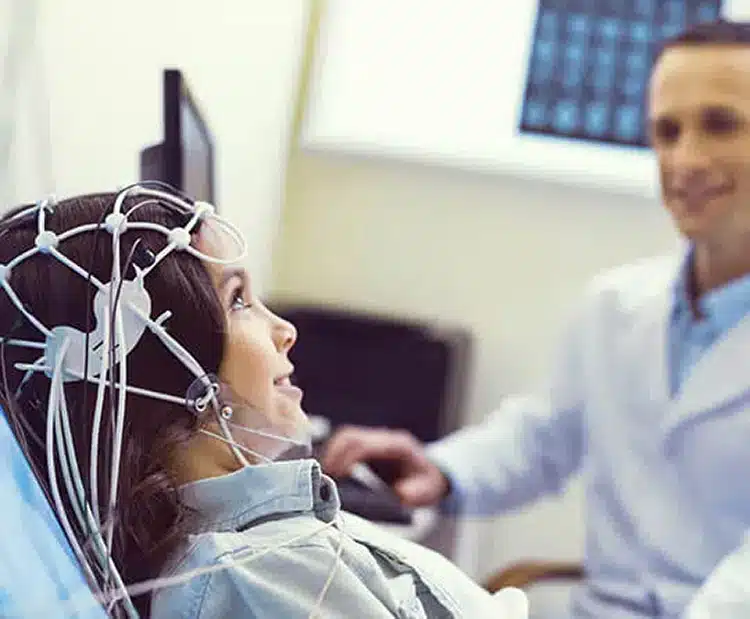WHAT IS AN EEG?
An electroencephalogram (EEG) is a test that detects electrical activity in your brain using metal discs, also known as electrodes, which are attached to your scalp. Your brain is a remarkable organ- the cells within it communicate with one another by electrical signals. These signals are firing and active all the time, even when you are asleep. An EEG records these signals as wavy lines, allowing them to be interpreted by a neurologist.

Why did your physician recommend an EEG for you?
An EEG can reveal changes in brain activity that might be indicate a particular disorder of the brain. Your physician may use it in the management of Epilepsy, Brain tumor, Brain damage from head injury, Brain dysfunction/encephalopathy, Stroke, Sleep disorders, and others.
How should I prepare for the test?
You may wash your hair the night before or the day of your test, but avoid any hair products or conditioners. These can minimize adherence between your scalp and the electrodes.
You will feel very little or no discomfort during your EEG as the electrodes do not produce or transmit signals, but simply record your brain activity. During the study, the technician will measure your head and mark your scalp and subsequently place electrodes on your scalp. You will then rest comfortably until the study is completed. A video camera will monitor for any physical changes during the study. Lights may be flashed rapidly before your eyes or you may be asked to breathe deeply and rapidly- these help to make the study more effective.
For a sleep deprived EEG, please do not sleep for 24 hours prior to the test and have someone drive you to and from the test center.
How long does a test take?
This varies based on the request of your physician. For a routine EEG or sleep deprived EEG, once the electrodes are in place, an EEG typically takes 30 to 60 minutes.
Do you perform Ambulatory EEG studies?
Yes! We offer 24-48 hour ambulatory studies.
Do you perform Pediatric EEG studies?
Yes! We offer EEG studies (routine, sleep deprived, and ambulatory) for cooperative patients ages 5 and above.
